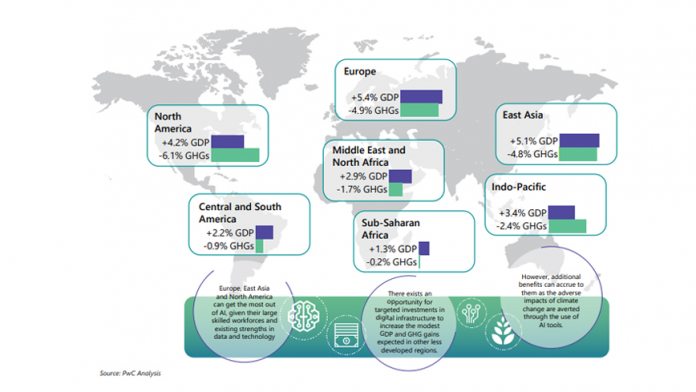These are topics Microsoft has talked about extensively, with healthcare the only major talking point missing. Still, the GDP impact is arguably less important than what AI can do to limit climate change. According to the study, the US could have the biggest reduction in greenhouse gasses, a drop of 6.1%. It would do so through a mishmash of different AI-powered technologies, such as traffic optimization, renewable efficiency, and smart energy consumption. Of course, it’s also possible there are ways AI can help that have yet to be realized. Behind the United States, the pair believe Europe could cut greenhouse gas emissions by 4.9%, and East Asia 5.1%. The overall reduction in emissions is predicted to be 4%, which is significant, but clearly not enough on its own. Some would argue that use of AI in the energy and transportation sectors could further encourage companies to keep using fossil fuels. These predictions assume a “continued reliance on fossil fuels”, and a limited switch to renewables. Should the transition to low-carbon methods accelerate, though, AI could still help in a number of scenarios, increasing efficiency and providing insights on usage. Meanwhile, the EU GDP could grow by 5.4%, and East Asia’s 5.1% as a result of AI. Globally, PwC predicts the creation of between 18.4 and 38.2 million jobs globally in these sectors, equivalent to the entire population of the UK.




